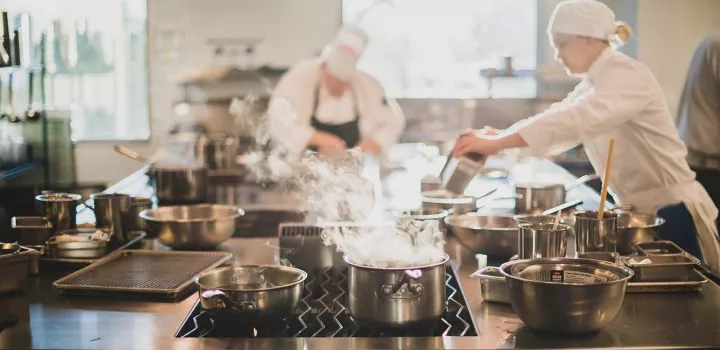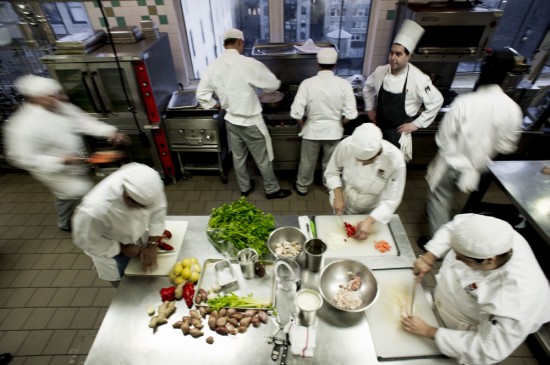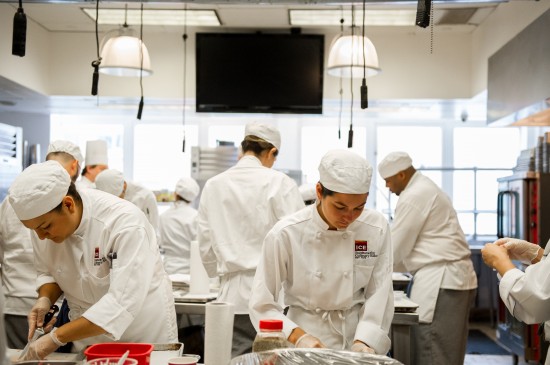
Making the Most of Your Externship
After months of hands-on lessons in ICE’s kitchens, my classmates and I were reaching the culmination of our education: the completion of an externship of our choosing. In preparation for this real-world experience, my classmates and I had spent months researching different restaurants or culinary businesses and trailing. Yet even with the most extensive research, the externship itself can often be very different than expected.
As a public relations professional with a passion for cooking, I chose to pursue an externship in the field of food media at Tasting Table. My goal was to hone my skills in the kitchen while learning the ins and outs of recipe testing and writing. As an extern, my role is to contribute recipe ideas, assist in recipe testing and work alongside the full-time staff on the execution of menus for private parties and Tasting Table partnership events. I'm thrilled to have the opportunity to work in a professional culinary environment where I learn new things every day and, after about a month on the job, I wanted to share three of the most important lessons I've learned so far about transitioning from the classroom to an externship site.
Don't Get Sloppy: No matter how relaxed your externship site may seem, don't get too comfortable. Work clean, bring your Sharpie and notebook and be as prepared and professional as you were when taking your final practical exam at ICE. Keep a clean workstation and stay organized.
Network: The NYC food scene is a small one. Most cooks that you work with will have experience at three or four other local restaurants (at least!) and have a vast network of culinary connections, so take advantage of them. Don’t hesitate to ask questions of the other cooks and learn as much as you can from their experiences.
Be Flexible: Every chef is different. At Tasting Table, I've had the opportunity to work with a variety of different visiting chefs, and I can attest that each has their own style, opinion, and attitude. Follow your chef's lead, and ask questions if something is unclear. Their style will most likely differ from what you learned in school, but paying attention to the nuances of each cook's technique is a great learning experience. Overall, the main thing I've learned is that professionalism and discipline speak volumes in the kitchen—just like in any workplace. Even if you aren't the most experienced cook on the line, volunteer for tasks and show the chefs that you are dedicated to working hard and improving yourself. Real-world kitchens will be more intense than the classroom, and there won't be anyone there to make sure you don’t screw up. Ultimately, the most valuable takeaway from culinary school is the ability to learn new techniques and adapt faster than you would have without prior culinary training. So work hard, stay focused and most of all, have fun!
To learn more about externships at ICE, click here.



